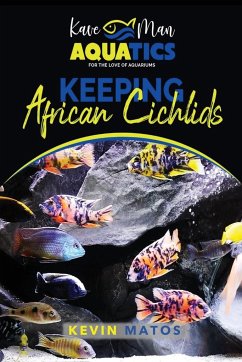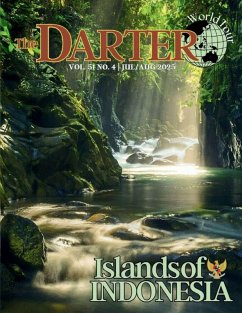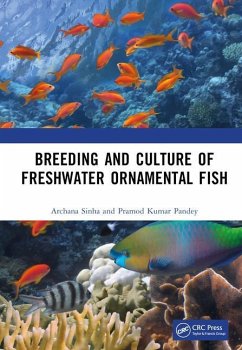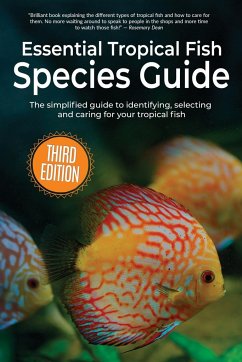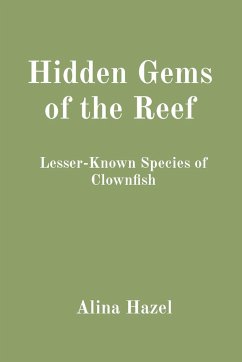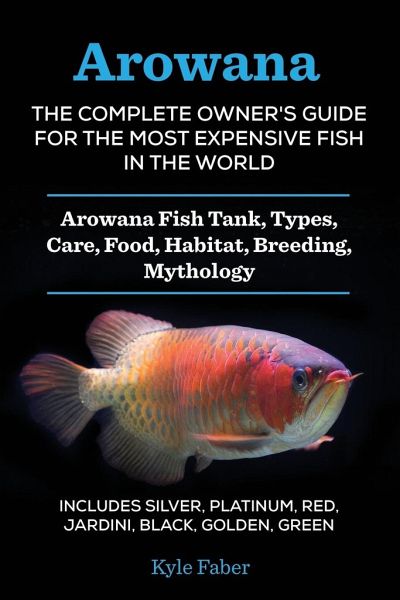
Arowana
The Complete Owner's Guide for the Most Expensive Fish in the World: Arowana Fish Tank, Types, Care, Food, Habitat, Breeding, Mythology - Includes Silver, Platinum, Red, Jardini, Black, Golden, Green
Versandkostenfrei!
Versandfertig in 1-2 Wochen
13,99 €
inkl. MwSt.

PAYBACK Punkte
7 °P sammeln!
The Arowana is the world's most costly aquarium fish. It is a tropical freshwater fish from the brackish swamps of Asia, the river basins of South America, and the pools and billabongs of Austrailia. There are numerous types of Arowanas, most of which can easily grow up to three feet long. This fish is a savage predator that’s been around since the age of the dinosaurs and has remained unchanged, which is why some people call these fish "living fossils." The Arowana is prized for its unique metallic scales; the bristles that bulge from its jaw; and its undulating movements as it swims, which...
The Arowana is the world's most costly aquarium fish. It is a tropical freshwater fish from the brackish swamps of Asia, the river basins of South America, and the pools and billabongs of Austrailia. There are numerous types of Arowanas, most of which can easily grow up to three feet long. This fish is a savage predator that’s been around since the age of the dinosaurs and has remained unchanged, which is why some people call these fish "living fossils." The Arowana is prized for its unique metallic scales; the bristles that bulge from its jaw; and its undulating movements as it swims, which are reminiscent of the paper serpents you might find in a Chinese New Year's parade. In fact, the similarities between the Arowana and the dragon of Chinese lore have given rise to the belief that the fish brings good fortune and success. For all of these reasons, the Arowana has become one of the most coveted aquarium fish in the world. The situation of the Arowana is very unique: nearly extinct in the wild, Arowanas have actually seen an increase in reproduction in recent years as they’re bred by the thousands on farms for the aquarium trade. The Arowana’s declining population and subsequent resurgence is a direct result of the conservation movement of the last several decades — but not in the way you might think. In the 1970s, when the international community started to organize around the idea of ensuring imperiled species were protected, the idea was to boycott the exchange of all potentially endangered species, including the Asian Arowana. In those days the Arowana was considered a food fish, and not an especially prized one. Although the interest in Arowanas was relatively minimal at that point, the fish is an apex predator in its ecosystem and a moderate-reproducing species, so it wound up on the list of protected species and was banned from international exchange. This effort at conservation backfired, and spectacularly: once a relatively unpopular food fish, when the Arowana became a restricted species, the interest in it as an aquarium fish spiked. Suddenly, the fish was in high demand as a status symbol, and those in the aquarium trade were eager to breed and raise as many Arowanas as they could for sale. This brings us to where we are today, with certain prized specimens of Arowana being sold for an astonishing $400,000 each! What makes this fish so special? We’ll discuss the myths, legends, types, costs, and care requirements for the incredibly unique and highly sought-after Arowana.





